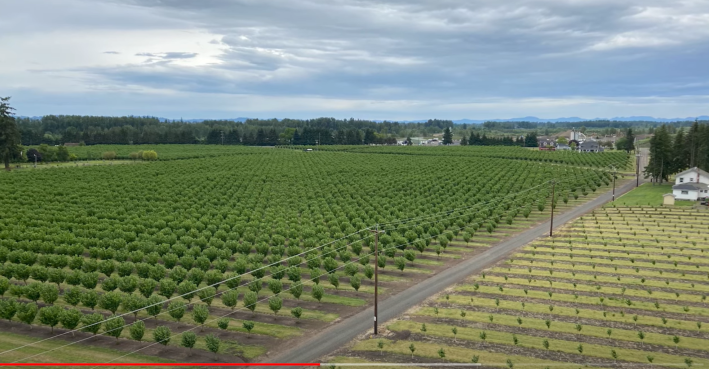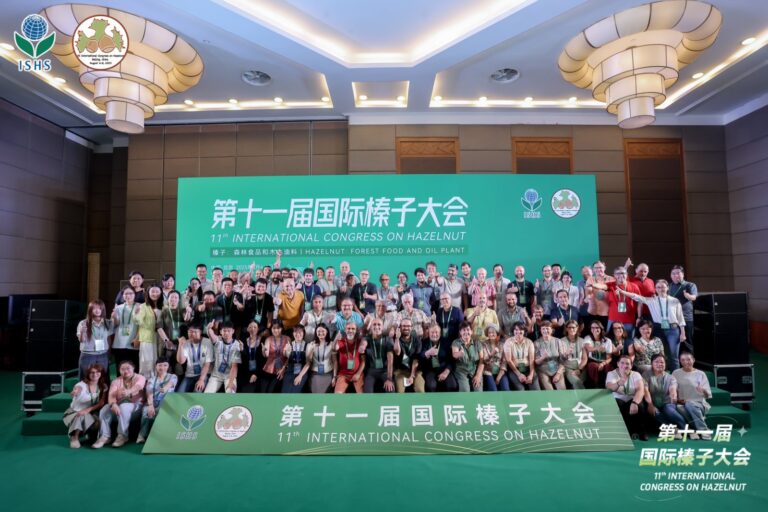Stink Bugs Devastate Georgia’s Hazelnut Crop
With no income from the devastated orchards, some farmers are turning to smuggling to make ends meet.
An Asian invader with a big appetite is probably the least welcome guest these days in Georgia and breakaway Abkhazia.
The brown marmorated stink bug, or BMSB, a native of east Asia with a taste for many fruits and other crops, was accidentally introduced into Pennsylvania in the 1990s and swiftly became a serious agricultural pest in many U.S. states. It later arrived in Europe as an unwelcome guest in Parisian apartments, among other places.
For the past three years, the bug has indulged its taste for hazelnuts, a major export earner in the South Caucasus. It wreaked so much damage on hazelnut trees in quasi-independent Abkhazia last year that most farmers called off the harvest. The Georgian government allocated almost $6 million to fight the pest last year, but farmers in Abkhazia said the promised pesticides never arrived, Democracy and Freedom Watch reported.
So rapid was the spread of BMSB after it appeared in Georgia in 2015 that it did an estimated 60 million lari ($24 million) in damage to the hazelnut crop the following year, JAMnews wrote.
Last year, the harvest was badly hit again, falling to less than half of the 2016 level.
“I was expecting 3 tonnes, and I barely harvested 300 kilograms,” one farmer told JAMnews.
Another farmer, Mariam Kodua, said her orchard produced seven tonnes of nuts, down from 25 the previous year. “It will be good if 35 percent of the hazelnuts will turn out okay,” Kodua said.
Ninety percent of Georgian hazelnuts are grown in Samegrelo region, bordering Abkhazia.
As the BMSB infestation continues this year, some in the Gali district across the border in Abkhazia have turned to smuggling to replace the lost income.
Smuggling, particularly of cigarettes from Abkhazia into Georgia proper, flourished in the 1990s but was almost completely suppressed by the mid-2000s.
“Many people used to be involved in this business, but most of them were forced to suspend such activities due to the arrests and high fines. Today, some have been forced to return to this job. The reason is hardship. All revenues for locals have actually disappeared, while cigarette [smuggling brings] quite big profits,” one local told Democracy and Freedom Watch.
- As of last year Georgia was the world’s third-largest hazelnut producer, behind Turkey and Italy. The crop was its second largest export earner. Frosty relations with Abkhazia have cut most formal economic ties, and hazelnuts are the only product Abkhazian farmers are allowed to sell in Georgia, The Economistwrote, adding that Abkhazian hazelnuts made up about 10 percent of Georgia’s exports of the crop.
- Tbilisi’s occasional efforts to rebuild tieswith Abkhazia have not been well received in the Russian-backed region. Abkhazian authorities have raised bureaucratic hurdles for the ethnic Georgian population, closing checkpoints and pressuring them to give up their Georgian passports.
- This summer, Abkhazian authorities launched a campaign to convince Gali residents to “better understand their origins and get back the ancient Abkhazian surnames and Abkhazian ethnicity,” in other words, to drop their Georgian ethnicity in order to obtain Abkhazian passports, Democracy and Freedom Watch reported.
Compiled by Ky Krauthamer
Copyright: tol.org






